|
First, I want to apologize to my readers for the long delay in posting new content. The past year has been full of various distractions which has caused me to have to focus on other things. Over time, I'll give you some additional details on what has transpired on my personal front but they have all been positive developments. The downside was that other aspects of my life required my full attention to the detriment of TTG.
For better of worse, the COVID-19 pandemic has given me some more time to spend with my family, catch up on things that I have wanted to do and now, re-focus on TTG. Going forward, I do hope to have more time to bring you new content relating to timeshares and travel. While the entire world is on lockdown with little to no travel plans planned for the future, the opportunity for some exciting deals is on the horizon. For those of you who have wanted to travel but couldn't, be prepared to see some incredible travel deals in the near future. The past decade has been an economic boom that has allowed many of us to travel throughout the world. Airlines had expanded at a rapid pace that allowed many of us to jet set around the world. Loyalty programs and timeshares allowed us to do so at a very affordable level. As this new chapter of the world begins, I don't know what it will bring. For many of us, hard times are ahead as jobs and companies will contract and shut down. For others, this type of economic turmoil brings about many opportunities and can allow you to see clearer on what is important for you and your family and what you want to accomplish in this life. The last year has been full of change for me and it appears that this next year will be the same. Change is occurring quickly and hope to be able to refocus on bringing you good and relevant content on timeshares and travel. Please reach out with any questions that you may have or content that you would like to see! I hope that the new chapter of TTG will be better than ever! As I have mentioned in many other posts, I am a points addict where I am continually earning and burning credit card points including hotel points and frequent flyer points. This "hobby" has allowed my family and I to travel extensively throughout the world for a fraction of the cost. While traveling for "free" or "quasi free" is nice, it takes a decent amount of time and effort to accumulate and use points. Additionally, when you use points, most of the time, they only allow you to reserve standard hotel rooms. Timeshares have a very bad reputation and I am attempting to revise the perception of timeshares by providing real world examples on how one can own a timeshare and maximize its use to travel for a small fraction of the retail cost. One way that I am attempting to do this is to compare the accommodations that one can receive with timeshares as opposed to hotels. I generally compare a hotel room to a studio unit when making comparisons on cost. A hotel room and studio, while similar, are actually a bit different. Many studio units have a sleeper sofa as well as a small kitchenette whereas most hotel rooms do not. In case you missed this article, this is a good read on the economics of timeshare ownership where I use hotel rooms as a comparison for travel costs. In this post, I wanted to show you some pictures of a studio unit that we had during our recent trip to Park City, Utah at the Marriott Summitt Watch. I will be doing a full review on this property later but as a preview, it is a stellar property! Here are some photos on our unit: The EntryThe Sleeper Sofa / Living AreaThe Sleeper Sofa / Living AreaClosetBathroomKitchetteDishes / Toaster Oven
Conclusion
As you can see, a timeshare studio isn't huge but generally surpasses that of a standard hotel room. You have a little more space, generally will have a sofa which mainly is a sleep sofa, has a small table and a small kitchenette. I wanted to post this so that my readers can get a better understanding of a timeshare studio. I think that is important so that you can compare the accommodations to a standard hotel room. As I have stated many times, by owning one 2 bedroom timeshare, I can get 4+ weeks in timeshare studio units. In the studio unit above, my family of four stayed for one week. I also did sleep on the sofa and it was surprisingly very comfortable. It was a memory foam mattress which was actually very enjoyable. While the room was definitely a bit tight for a family of four, we were comfortable in these accommodations. While we may have preferred a one or two bedroom, the studio unit definitely surpassed our expectations and truthfully would prefer 2 one week vacations rather than using double the amount of points for a one week vacation in a 1 bedroom. The point of this post is to show you a good example of a typical timeshare studio unit. I think that they are very comparable to hotel units but definitely exceed the comfort of hotel units by having a sofa, table and small kitchen. What do you think of timeshare studios?
The Timeshare Guru has been active for about a year now. The blog is growing but still needs the support of my readers.
A lot of good material was written when The Timeshare Guru was just started and most new readers probably never read it. In an effort to get some of this information out to my current readers, I thought I would re-post some of these articles. For the first one, here is a post on my opinion on who should own a timeshare. Timeshares are not for everyone for for some, they can be a fantastic way to travel very affordably.
Hurricane Season
Unfortunately, this has been a very active hurricane season for the Caribbean. First, Irma came in and destroyed the island paradises of St. Thomas, St. John, St. Martin and Barbuda only to be followed up by Maria which has caused a great amount of devastation in Puerto Rico and other island paradises. Natural disasters seem to be on the rise with Harvey doing a tremendous amount of destruction in Houston and now Mexico City is digging out from a earthquake. A lot of people have lost everything and it is truly sad. Impact to Timeshare Owners For timeshare owners, the issue that comes with these natural disasters are what are known as "special assessments". Special assessments are charges for unanticipated or non-budgeted items. Natural disasters are a key reason for special assessments. Most timeshare owners have deeded weeks which are considered real property interests. A timeshare interest is actually a deeded real property interest and like a home, requires maintenance, insurance and constant upkeep. As real property owners, timeshare owners are responsible for the maintenance of the property and improvements but can also be held accountable for other economic items that are not budgeted. Special Assessments In almost all governing documents concerning timeshare ownership, the resort will have the authority to issue special assessment(s) to the owners for any unplanned expenses. This allows the resort to obtain funds required for the continual operation of the resort. Natural disasters are probably the number one cause of special assessments. Natural disasters are unplanned and can wreak havoc on the resort. With the vast amount of destruction in the Caribbean, I believe that a lot of timeshare owners will be getting a special assessment. The special assessment will be an additional amount of money required to be paid by the timeshare owner in excess of their annual maintenance fees. Unfortunately, these special assessment fees are non-negotiable and timeshare owners are required to pay them when assessed. If timeshare owners fail to pay them, they will be in default and subject to penalties and potential foreclosure. While most resorts should have insurance, some resorts may not have adequate insurance to cover all the damage that occurred. Like homeowners, some resorts directly on the beach may not have flood insurance or may not be able to secure adequate insurance on the property to cover the complete replacement value. If the resort did not have adequate insurance or insurance that did not cover some types of damage, timeshare owners will generally be on the hook for the difference. The amount will be pro-rated between all owners but the amount of the bill can be a lot and can even be many times the amount of the annual maintenance fees. Comparison to Maintenance Fees Timeshare owners are very familiar with maintenance fees which are the annual assessments that must be paid. These include all the costs and expenses of running and operating the resort. These fees are pro-rated to all the owners and generally include maintenance, management, insurance, capital improvements and other items that allow the resort to operate. Unfortunately, sometimes that amount budgeted for these items is greater than the amount of money that the resort has. When this occurs, the HOA or governing body of the resort can assess additional fees to owners which are the special assessments. Most HOA's and resorts try not to do special assessments because it is unplanned, unappreciated and generally results in a lot of disgruntled owners. Due to this, most resorts try to always have adequate capital reserves in order to have extra funds available to do any maintenance or capital improvements that may not have been foreseen. If you look at your annual maintenance fee statement, there are usually a item budgeted for "reserves". This is extra money that the resorts hold for the "just in case" situation. Most times, for well run resorts, these reserves should be adequate to cover some unplanned expenses but for those true disasters, special assessments are available for the resorts to get the extra required money. Timeshare Owners in Points Based Systems Many timeshare owners no longer own deeded weeks and instead own "points". The actual properties are owned in a land trust and owners of points are granted the ability to use resorts based on the exchange charts and use of their points. For these types of timeshare owners, special assessments may still be done but the likely result for these timeshare owners will be an increase in maintenance fees. All costs and expenses of the properties in the land trust are passed through to owners. Since there are many more properties and many more owners, the benefit of these land trusts are that expenses are widely spread out so if one resort is underfunded, the land trust still should have adequate funds from other resorts which were over-funded. The disadvantage to a land trust is that when something major occurs to one or more properties in the land trust, all timeshare owners in a land trust will likely see an increase in their annual dues even if you never travel to the destination that is causing the increase. For example, Marriott is a points based system and the Marriott Frenchman's Cove's property on St. Thomas suffered some significant damage. The amount is unknown but all Marriott points owners in the land trust will essentially be required to pay their pro-rata portion to fix that property. Since the pool is large, the amount per owner will likely be relatively small but I would anticipate some increase increase in maintenance fees for the following year for Marriott owners. Conclusion Special assessments are a way for the resort to charge owners for any unforeseen or unexpected costs incurred. Natural disasters are one of the major reasons that the resorts have this taxing ability. If you own at a resort that got damaged by the hurricanes, earthquakes or flooding, we hope that the resort was adequately insured. If not, the next place to look is to the owners. Special assessments are part of timeshare ownership and are very unpopular to say the least. Special assessments are one of the major downsides to timeshare ownership. While they tend to not happen often, if they do, owners may be subject to additional unplanned expenses simply by being an owner. Do you own at a timeshare property that has given a special assessment? Please leave your comments below. I started this blog because I think that timeshares are misunderstood and if used properly and you can understand the systems, they can make worldwide travel affordable to most. While this statement is my true motivating factor, the initial purchase price of timeshares can be exorbitant and if people purchase at these exorbitant prices, timeshare ownership almost never makes financial sense. The key to maximizing timeshare ownership is to purchase a week at a reasonable cost. "Reasonable" definitely has different meanings for different programs. I have not gone into much detail on purchasing from a developer or purchasing resale, but there will be more posts to come on this topic. While there may be some benefits to purchasing directly from the developer, the price for that privilege is generally extremely high as compared to resale. I have argued in other posts that the initial timeshare purchase price should be considered a "sunk cost" since it will be difficult if not impossible to ever recoup the initial price. The current timeshare model is based on developer sales since this is where most of the money for timeshares is made. Developers do not profit from the resale market so they tend to impose penalties to resale purchasers in order to keep developer sales high. The difference in price between developer sales and resale sales can literally be tens of thousands of dollars. As I recently discussed in my other post concerning Westgate, Westgate was trying to sell me a timeshare for over $100,000 when the same timeshare was being offered on ebay for $1.00 - YES $1.00!!! As I listened to their pitch and saw the economics of the offered "deals", I was truthfully embarrassed that I like timeshares as much as I do. The system is clearly broken but this experience brought up an interesting ethical question. Should you tell timeshare owners or potential timeshare owners the true economic realities of a timeshare purchase? When I was participating in a timeshare presentation, there were multiple parties that were very interested. The pitch seems to make a lot of sense and timeshare salespeople tend to tell you anything and everything you want to hear to make the sale. I witnessed a purchase at my meeting. When I hear this and I saw people signing on the dotted line, I want to burst out and tell them the truth. The question is whether I should. Other times, I meet various timeshare owners when vacationing and while some are not pleased with the overall system, many timeshare owners are very happy with the system. Many bought from the developer, use their timeshare each year and are very happy with the family vacations that they now go on. Many people enthusiastically indicate that their initial purchase price of $50-$100,000 was a great "investment". Many people do not realize that the initial purchase price is almost never going to be recovered so these owners do not realize that the $50-$100,000 is gone - not like your typical real estate purchase. The question is should I tell this fact or leave them be enjoying their purchase? As I say, timeshares are great especially if you can purchase at a high quality resort for almost nothing. I purchased my first timeshare at Hyatt for a purchase price of about $6,000 on the resale market. While I paid $6,000, Hyatt was offering the same week for about $35,000 or more. I thought I got a great deal until I saw many, many weeks selling for a $1.00 on Ebay. Do I regret my purchase?? Absolutely not. Even though I paid thousands more than I could of, it has given me numerous family vacations in well appointed condos for a fraction of the retail cost. If I paid for these vacations at standard hotels, I would have blown through $6,000 in one vacation. Would I be happier if I paid $1.00?? Sure, but my view is that it is irrelevant. I paid $6,000 because I thought it was a good deal. Arguably, people pay $100,000 and they think it is a good deal. To get back to my point of this post, in my opinion, everyone has a different idea on what a good deal is. While I definitely want to tell people and inform the world on the true realities of timeshare purchases, I have come to conclusion that telling people who already own a timeshare will be of little value. If you purchase something and then found out you can get the same item for 90% less across the street, if you cannot return the item, the only thing that comes out of telling someone of the lower price is buyers remorse. If they never knew about the 90%, they will still hopefully be happy with the purchase. Arguably, they bought the item in the first place because they thought it was a good deal and wanted the item. I definitely feel obligated to discuss and tell people about the economic realities of timeshare purchases but it is a difficult subject to discuss. You can definitely save people thousands of dollars, but you also run the risk of immediately making them regret the purchase and be upset with their purchase for many, many years. If I am in a position to talk about timeshares with people, I usually encourage them to do their research before buying. Hopefully, they will find my blog or the countless other articles on timeshare ownership that discusses the economics of the situation so that they can fully review how the programs work and the true cost of ownership. They can review the initial purchase price and determine whether the upfront fee that will almost never be recouped makes financial sense when considering the approximate cost of annual vacations going forward. If the truth is disclosed, people can make informed decisions on whether timeshare ownership can work for them, their family and their vacation style. I try not to discuss purchase prices with existing owners as there is little benefit that can come out of the conversation. However, this is truthfully an ethical dilemma for me as I really hate watching people purchase something for thousands of dollars that becomes almost financially worthless once they sign the documents. What are your thoughts? Should you encourage people to not buy at a timeshare presentation? Do you tell people that their timeshare is probably worth a fraction of the initial cost? I am interested to see comments to this. Please leave them below!
Doctor of Credit has been a very gracious supporter of The Timeshare Guru and has allowed me to post a number of articles on his site regarding timeshares.
I posted a complete guide to renting timeshares on his site which is a great resource for those looking to rent timeshares. I definitely encourage you to review the guide and to frequent the Doctor of Credit's website. His blog is the preeminent place to find bank account deals and has a lot of great travel deals as well as credit card deals. Make sure to leave comments below if you have alternative sources or other tips and tricks to rent timeshares for cheap! Thanks to the Doctor of Credit for allowing me to post a guest post on his blog found here. As a result of his generosity, there are a few new readers to The Timeshare Guru. As a result of this new readership, I thought I would take this opportunity to give a very basic overview of timeshares.
Timeshares are complicated so I thought I can break down the basics so that readers can have a better understanding of various options involved in actually owning or using a timeshare. Types of Timeshares: There are actually a few different types of timeshares. Most people are familiar with the most basic model which is where you purchase a one week interval at a resort. This "weekly model" allows you to use that specific week each year or sometimes, every other year if you own a bi-annual week. Another type of timeshare ownership is a "points model". Instead of owning a specific week, you purchase an annual allocation of points which can then be redeemed for stays are various resorts within that particular program. You typically purchase enough points to use for a week stay at various resorts. Yet another model is a "hybrid model'. In a hybrid model, you typically purchase a week a at a particular resort and you have the option to use that particular week or alternatively, give up that week and get a certain amount of allocated points. You then use those points to make reservations in other resorts. Units: Timeshares generally come in various size units. Timeshares come in studios, one bedrooms, two bedrooms, three bedrooms and occasionally four bedrooms. Studios are similar to hotels but generally can be slightly larger. Most timeshares larger than a studio will come with a full kitchen and living room. Seasons: Unlike the standard four seasons, timeshares come in various different seasons. Each program breaks down the 52 weeks of the year into many different seasons with as many as 6-8 seasons with various names depending on the program such as Platinum, Diamond, Bronze, Mountain, etc. The general premise is that high demand weeks in high demand locations will be categorized in the highest seasons. Internal Exchanges: While the older system of timeshares generally obligated you to buy a week and use that specific week year after year, the new version of timeshares attempts to give the purchaser a lot more flexibility. Timeshares now offer the ability to exchange their week and/or points into other resorts within the same system. For example, if you own a Hilton timeshare, you can exchange your week into another week at another Hilton timeshare. This goes for almost all timeshares that are affiliated with larger brands (Marriott, Hyatt, Hilton, Wyndham, Four Seasons, Vistana, etc.) External Exchanges: In addition to being able to exchange for other properties within the same brand, almost all timeshares offer the ability to use a third party exchange company to exchange your week and/or points into other timeshares. Timeshare brands are generally associated with either RCI or Interval International. For example, Marriott trades through Interval International and Hilton trades through RCI. A Hilton owner can never trade into a Marriott and a Marriott owner can never trade into a Hilton. RCI: RCI is one of the major exchange companies. It was the original exchange company and is the largest based on the amount of resorts affiliated with RCI. RCI was purchased by Wyndham International a few years back but still operates independently. Interval International: Interval International is the other major exchange company. Interval International has been a major player in the timeshare market and recently purchased many of the large brand timeshares including Hyatt, Vistana (Starwood brands)and Aqua-Aston. Purchasing a Timeshare: The main option in purchasing a timeshare is buying from the developer or buying resale. Buying from the developer occurs when you attend a timeshare presentation or purchase directly with the timeshare brand. Resale occurs when you buy directly from a current owner or on the secondary market with major outlets being Redweek, Ebay or other real estate brokerage firms that specialize in timeshares. Developer Purchases: When you purchase from the developer, they tend to offer various perks including hotel points, extra or bonus vacation weeks, resort credits or some other perk for purchasing. Purchasing from a developer is vastly more expensive then purchasing on the resale market. Resale Purchases: Purchasing resale can provide some truly phenomenal cost savings as opposing to buying from the developer. However, there are few items that you need to be aware of before you move forward with a resale purchase. The developer may provide some type of "penalties" for buying resale. This can be prohibitions on internal trades or prohibition against converting your week into hotel points. Also, you need to make sure that there are no debts or other encumbrances on the resale week. If you do not thoroughly research the timeshare week, you could end up assuming debt that you didn't realize existed. Initial Purchase Price: In order to purchase a timeshare, it will require an upfront fee for purchase. The fees will vary widely depending on the size of unit, season, whether you purchase resale or from the developer and whether it is annual or bi-annual usage. The fees can be as little as $0.00 (NOT A TYPO) or hundreds of thousands of dollars (AGAIN - NOT A TYPO). Maintenance Fees: In addition to the initial purchase price, the owner will be required to pay maintenance fees on the unit. Maintenance fees are essentially all the pass through costs of the resort broken down by unit and week. Maintenance fees include property taxes, management fees, capital expenditures, reserve accounts, staffing, housekeeping, etc. Maintenance fees can vary widely but tend to range from $500-$2500. These fees occur each and every year, regardless of whether you use the timeshare. As an aside, timeshares have developed this awful reputation due to this fact concerning maintenance fees and their recurrence and not being adequately disclosed during purchase. Exchange Fees: In addition to the purchase price and maintenance fees, you will generally have to pay an exchange fee. Exchange fees can be levied on internal reservations, external reservations, guest certificates, cancellation fees, etc. There are no shortage of fees associated with timeshare usage. Converting Timeshares to Hotel Points: Timeshares that are associated with major hotel brands generally offer timeshare owners the ability to convert their week into hotel points. This "perk" is one of those that generally will be taken away if you purchase resale but can vary according to the timeshare brand. Converting into hotel points generally does not convert at a favorable rate but it can be a useful option in some limited situations. Renting Timeshare Weeks: RCI and Internal International both offer options to rent weeks for cash instead of exchanging your week and/or points. These are called Interval Getaways or RCI Extra Vacations. The rates for these weeks can be as low as $200 per week and can offer a tremendous amount of value. One secret is that you do not even need to own a timeshare in order to rent these weeks. Reselling Timeshares: Timeshares are easy to purchase but can be very difficult to sell. This is generally a surprise to most owners since they were likely induced to purchase thinking that the timeshare, a deeded property, would appreciate in value. Timeshares almost never increase in value and can be difficult to sell since there is more inventory than demand. The poor reputations of timeshares do not help the resale market either. if you are new to this website, I am sure that you have many preconceived notions on timeshares and have a lot of skepticism on timeshares. While I am definitely a fan of timeshares, I am not here shilling purchases of timeshares as the intent of this blog is to educate timeshare owners and show you how you can maximize ownership, maximize the systems, grab cheap weeks without owning a timeshare and get a tremendous amount of value out of the systems if you own. I encourage you to look around the site at some various posts that go into some more detail on timeshares and some various deals that can be offered through these programs. As the site grows, I anticipate adding more details on some of the other major programs but I am hoping that readers can help direct me for content that they find useful. Please reach out with any questions and I hope that I can help you see how timeshares can actually be a wonderful way to vacation with very little cost! TTG The Timeshare Guru
Most if not all of the major timeshare brands offer an "Owner's Update" when you are staying at one of their properties. As it sounds, the Owner's Update is for owners of one of their timeshare properties and is generally meant to give Owner's an update on the program, new properties, tweaks or changes to the program and to make sure that owners are happy with their timeshare.
The Owner's Update is generally much more relaxed that a typical timeshare presentation since they are talking to actual owners who have already bought into the program. Most of the timeshare developers offer incentives to go to these owner updates. In my experience, I have been offered visa gift gifts, points, free or discounted activities, resort credits and other similar incentives. The Owner's Update definitely has a much different feel than the other timeshare presentations since they no longer have to try to convince you to buy into their program. However, the reason that they give you incentives to attend these Owner Updates is to assess your use of the program and attempt to upsell you into more points, a bigger unit or try to get you to purchase additional weeks or points. Additionally, the representatives have full access to your entire history of the week/points that you own so they can see the amount of reservations you have made, the purchase price of the week/points, whether you purchased from the developer or resale, the amount of exchanges that you made through Interval or RCI and various other interesting tidbits of information that gleams some interesting information on your vacation style and how you have historically used the program. If you are not sure whether you are truly maximizing your ownership, this information can be very helpful. It always surprises me that many timeshare owners do not exchange their weeks or simply use the week that they purchased. For some people, this is fine but there are many, many more ways to get tremendous value out of your timeshare instead of just using your owned week. They generally try to use this information to show you how to get more value of your weeks/points or how additional weeks/points can help you travel more. Most times, these types of conversations have been low key and without the high pressure sales tactics that give timeshares a bad name. I recently visited the Hyatt Wild Oak Ranch in San Antonio and as an Hyatt owner, we were given the option of an $100 resort credit or 7,500 World of Hyatt points in exchange for sitting down for at least 60 minutes. I obviously took them up on their offer as free money / points is almost always worth it to me and I was curious to hear more about the potential new rollout of the pure points system which Hyatt is allegedly creating that has been briefly discussed here. I chose the 7,500 World of Hyatt points instead of the resort credit since I find that I can get greater than $100 of value out of the 7,500 points. I can generally get 2-6 cents of value with World of Hyatt Points which would value this gift at anywhere between $150-$450 in value. An awesome value for only about 60 minutes of our time. In my opinion, the Owner's Update is a very informal way to get more information on the timeshare system and could be a good way to learn about the various intracies of the program and to better understand exchange options, reservation windows and various other details of the timeshare system. The incentives that they provide can be meaningful and I generally do not mind giving them some of my precious vacation time in exchange for their various incentives. They are generally low pressure and if the representative does not sense any potential ability to upsell you for additional weeks/points, the meeting generally goes very quick and you can get back to your vacation. Have you been to an Owner's Update? What has been your experience? If so, leave your comments below.
If you are a frequent traveler, having hotel status can really help in making the stay more enjoyable. Hotel status can give you various perks that the ordinary traveler will not receive. Early check-in, late checkouts, suite upgrades, lounge access, and free breakfast are all generally offered perks throughout the major chains.
The value of these perks differ according to travel style but there is definitely a value associated with them. Timeshares come with its own set of perks but are generally vastly different than hotel offers. Timeshares are more of a do-it-yourself type properties that generally do not come with any perks, even to those timeshare owners or guests who have hotel status or even own at the particular property. Hotel status generally resets itself at the end of February. You can gets status through many different channels but it is generally given by the number of nights that you stay in the hotel or the number of stays. You can also recieve hotel status through certain credit cards. I will discuss these in other posts. Since my hotel status just ran out in February, I have been starting to map out my travel for the upcoming year. I definitely enjoy having hotel status even though I highly prefer timeshares for my travels. As I began to map out a plan for 2017, I realized that some of my crazy travel plans were simply ridiculous in my effort to obtain top tier hotel status. For those in the hotel point world, Hyatt recently revamped its Gold Passport loyalty program and changed it to the World of Hyatt. There are a lot of things that changed in this program and some are good and some are bad. One of the biggest changes is that suite upgrades are now given for those who acheive top tier status called Globalist. You need to stay 60 nights on paid rates or earn 100,000 base points. 100,000 base points essentally requires a spend of $20,000. $20,000 in hotel expenses is generally completely out of reach for most personal travelers. It is clear that Hyatt, like most of the other major hotel brands, are targeting business travelers. Personal travelers just do not seem to worth the effort or profitability. Unlimited suite upgrades seems like a real awesome perk and I have some desire to achieve that status. However, the more I thought about it, the more ludicrous this endeavor seemed. A hotel suite, while nice, is basically a large room. Some may have a separate living area, some may have dining room table but almost none have a kitchen, a full size fridge, a second bedroom, a sofa sleeper or laundry facilities. Getting a potential suite upgrade at a hotel is nice but I have held top tier status in Hyatt, Marriott, and Hilton and when I travel on business for a few nights, I would occassional get a suite upgrade - exactly when it doesn't really matter since I would be traveling solo. When I travel with my family of 4, I have almost never received a suite upgrade at the time of check-in in any of these programs. Suite upgrades is a great marketing ploy by the hotel chains. They limit specific inventory so upgrades are few and far between. Since it is only available upon check-in, the chance of getting upgraded for a week is slim since they won't upgrade you if they sold it for even one night or may sell it for a night. Getting back to my point, most timeshares are actually better than suites. Studio units can be bigger than standard suites at most hotels. A 1 bedroom unit usually comes with a full kitchen and laundry facilities in the unit. Timeshares definitely offer most space than a hotel room. While hotel status can give you many perks, chasing hotel status generally isn't worth it for personal travelers who do not stay in hotels more than 50 nights per year. Most personal travelers would never stay the required amount of nights as it requires more than 7 weeks in a hotel! While most people get 2 weeks of vacation, staying an additional 5 weeks in a hotel to obtain status is almost impossible for most people. Additionally, Marriott requires 75 nights for its top tier status, Hyatt requires 60 nights, and Hilton requires 60 nights. There are less onerous methods to get status but still require a decent amount of spending at the hotel or a decent number of actual stays with the hotel chain. Timeshares are not perfect but I view them as being far superior than hotels in most areas. They may not have lounges, free breakfasts, mints on your pillows, turndown service or other luxurious that are nice, they generally offer high quality, luxurious condo-style units that are much more spacious and liveable than a hotel room. If you have never stayed at a timeshare, most timeshares that are affiliated with the major chains (Hilton, Marriott, Hyatt, Wyndham, Four Seasons, etc.) are just as nice if not nicer than their hotel counterparts. For business travelers who stay 50+ nights in a hotel, getting status is almost mandatory. It simplifies traveling and gives you extra perks that can be valuable and worthwhile. For those personal travelers who are striving to attain hotel status for potential suite upgrades or other "perks", think twice about the cost and effort. My recommendation would be to test out some timeshares and see what they offer. I have discussed the use of Interval International Getaways to rent weeks in a timeshare and recently discussed how you get obtain a membership to RCI to rent Extra Vacation weeks. There are some ridiculous deals on timeshare rentals that are significantly less than renting a hotel and come with "automatic" suite upgrades! |
Archives
April 2020
Categories
All
Archives
April 2020
|


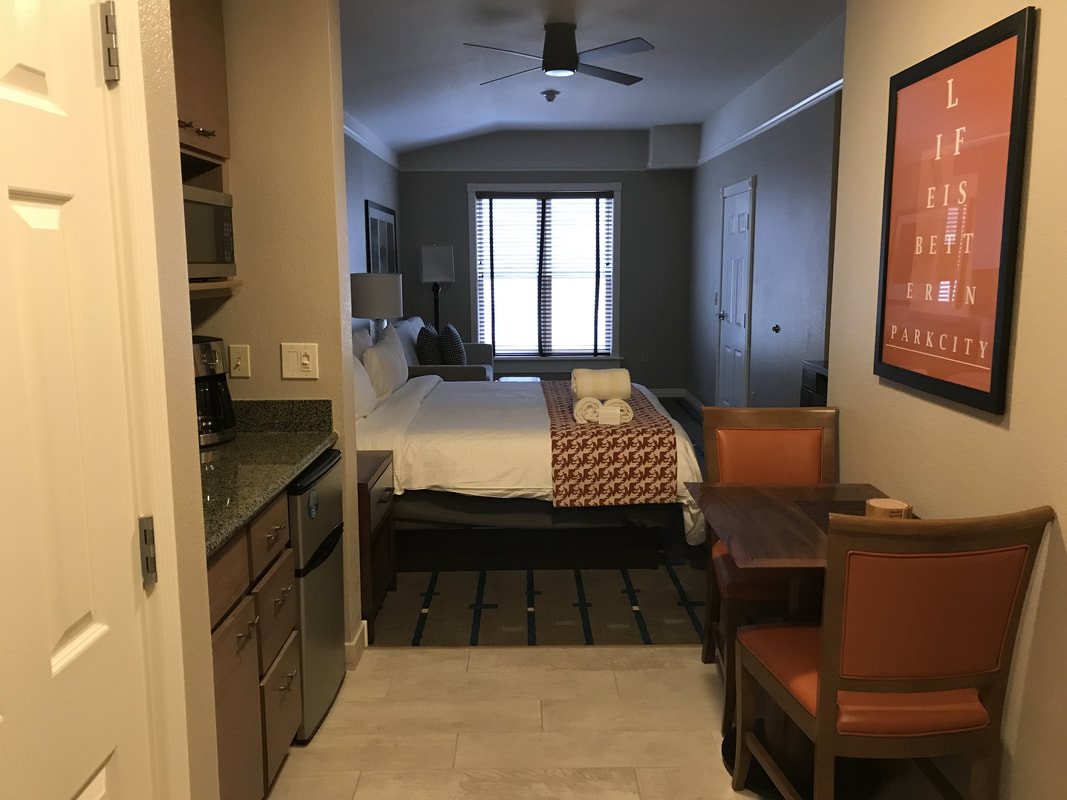
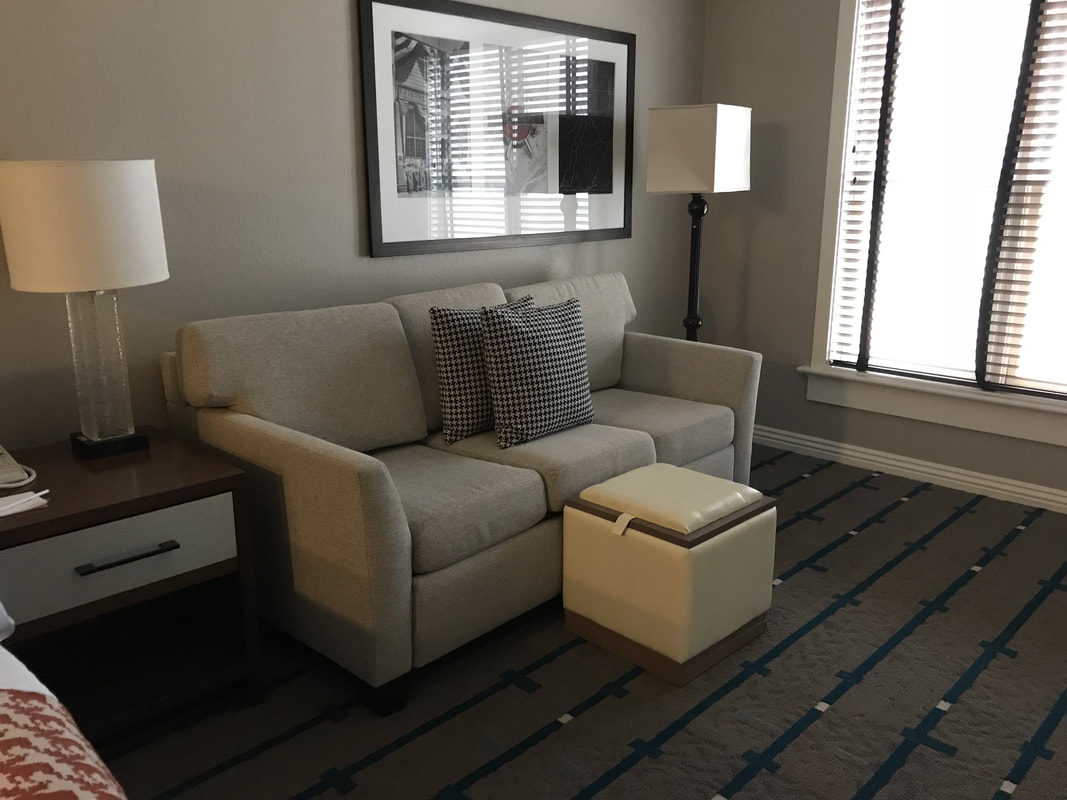

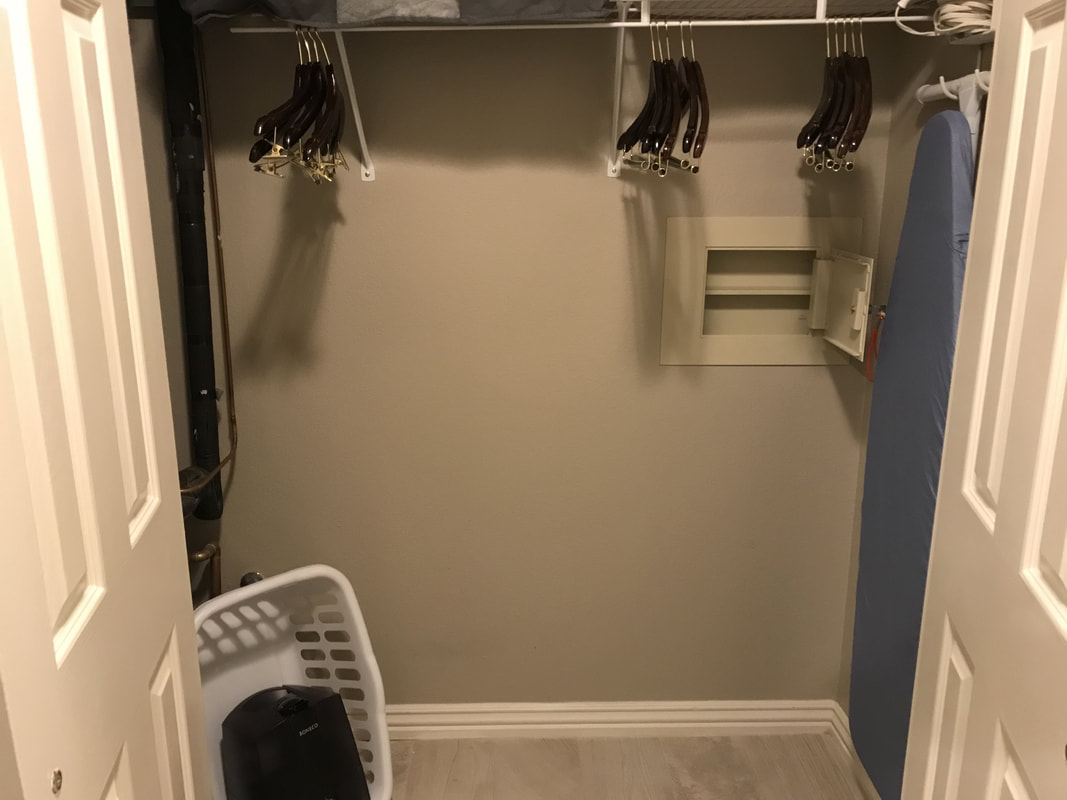
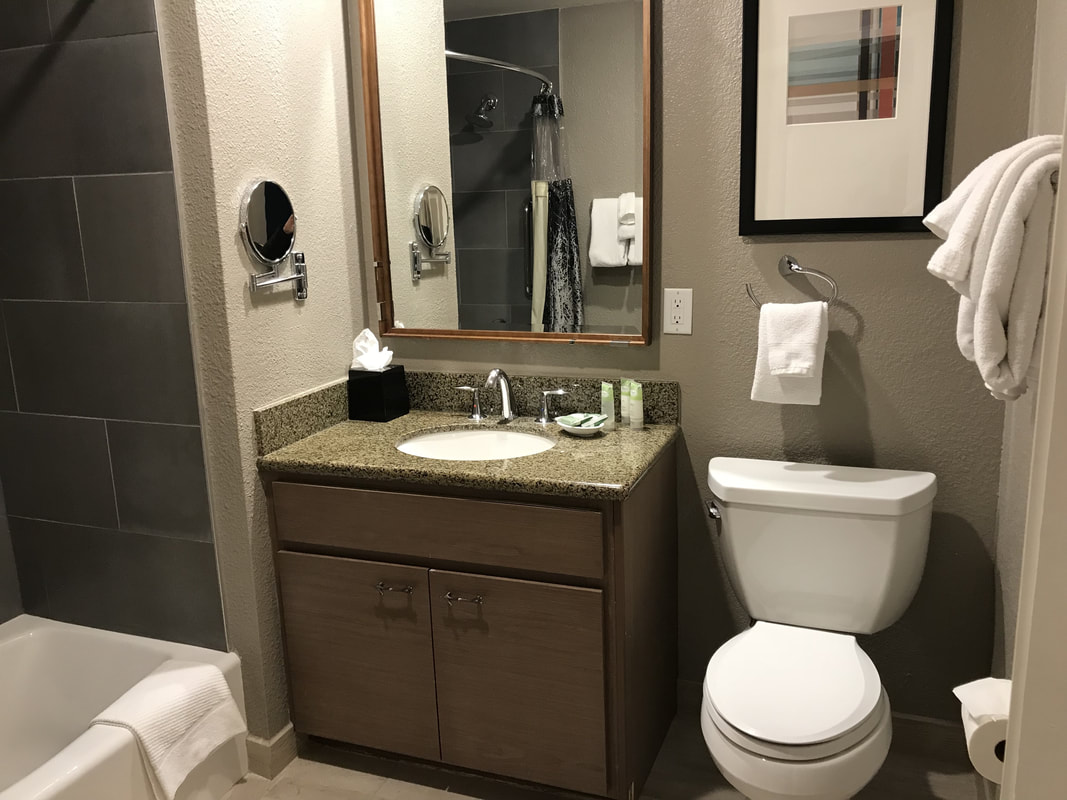
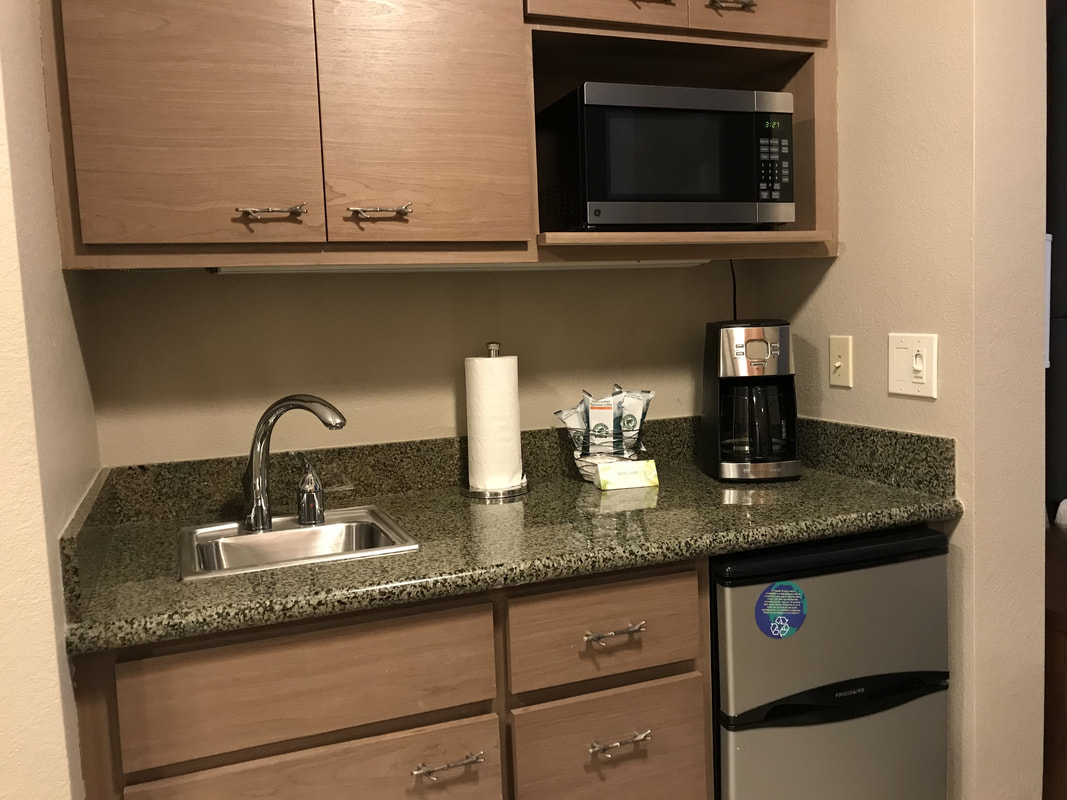
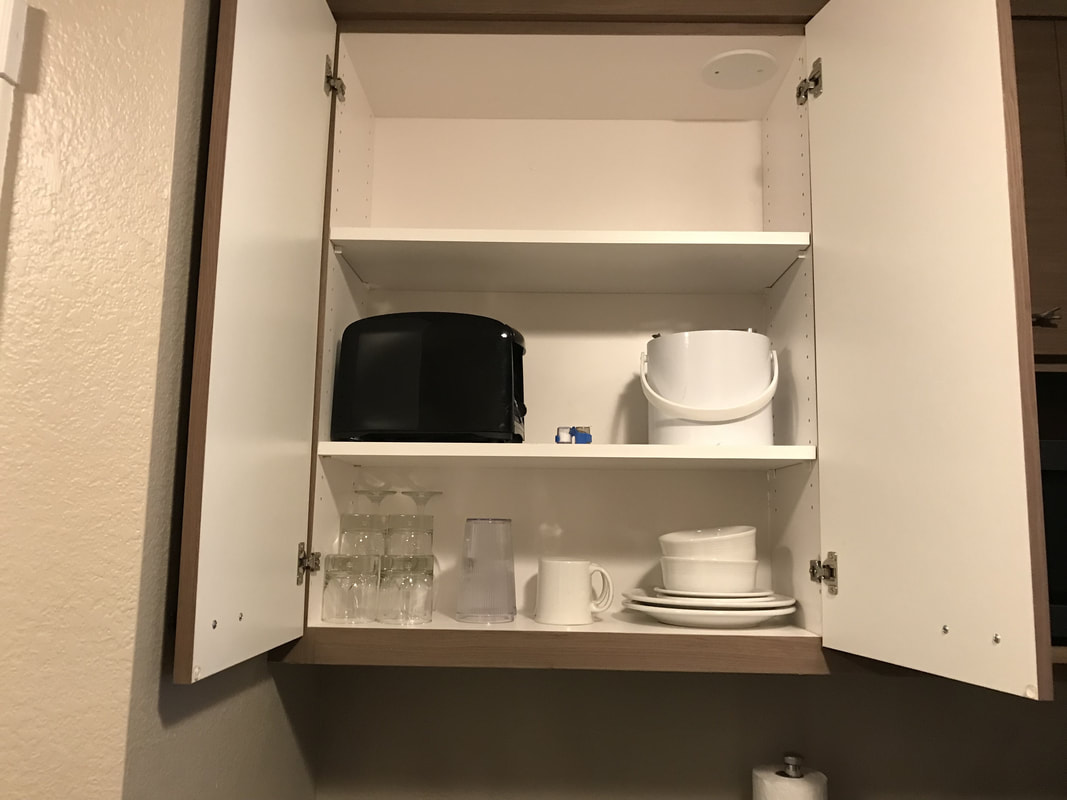




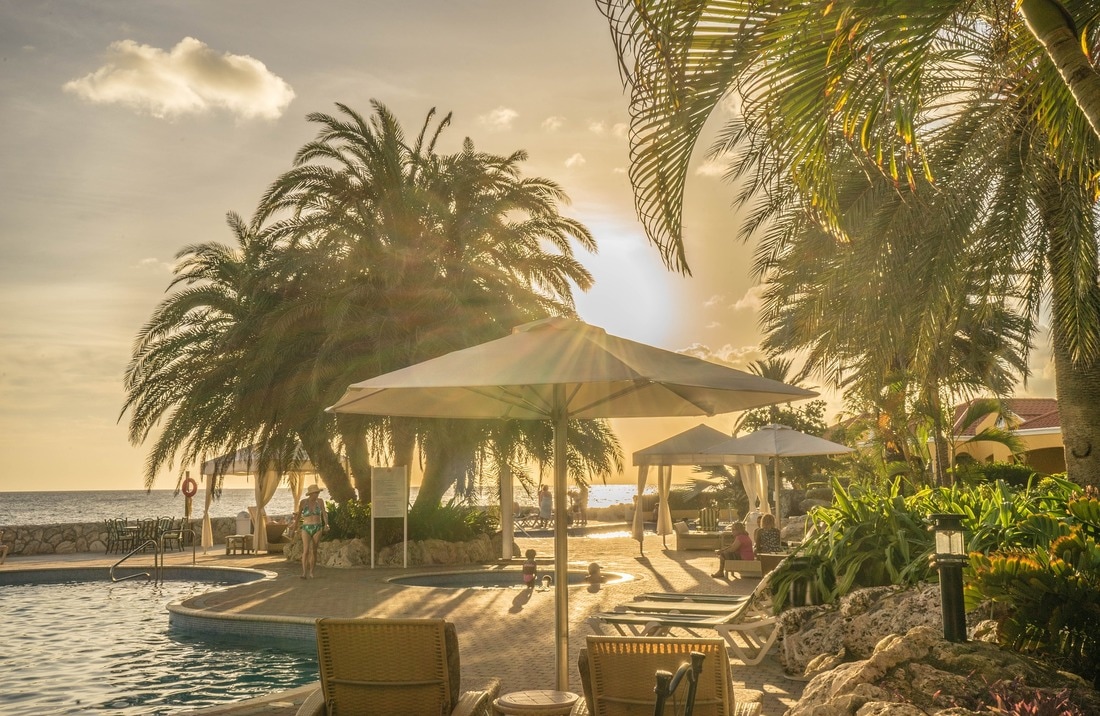


 RSS Feed
RSS Feed
